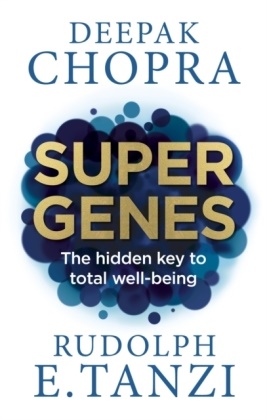Mehr lesen
"You are not simply the sum output of your genome," write Deepak Chopra and Rudy Tanzi, Director of the Genetics and Aging Research Unit at Massachusetts General Hospital. "You are the user and inventor of your genome." For years it was accepted knowledge that genes were fixed components of our bodies, and that we as individuals were incapable of altering our genetic make-up. Yet groundbreaking research suggests that changes in lifestyle and diet can greatly influence our genetic predispositions to disease and certain physical and psychological behaviours. Moreover, the adoption of ancient Vedic practices such as yoga and meditation can create genetic mutations that allow us to lead longer and healthier lives. Super Genes includes meditation and breathing practical exercises, as well as information on how to manage risk factors for disease. Combining scientific research with insights from ancient traditions, Chopra and Tanzi show how we need not be at the mercy of our genetic inheritance. Instead, they argue, we have the power to rewire our super genes for health and happiness.
Über den Autor / die Autorin
Deepak Chopra, MD, founder of the Chopra Foundation and Chopra Global, is a world-renowned pioneer in integrative medicine and personal transformation. He is also the founder behind DigitalDeepak.ai, a groundbreaking initiative utilising advanced AI technology to communicate his timeless wisdom worldwide, helping and guiding individuals on their path to well-being and personal growth. Chopra is the author of more than ninety books, including numerous New York Times bestsellers. Time magazine has described Dr Chopra as 'one of the top 100 heroes and icons of the century.'Prof Rudolph E. Tanzi is the Joseph P. and Rose F. Kennedy Professor of Neurology at Harvard University. Dr. Tanzi has been investigating the genetics of neurological disease since the 1980s, when he participated in the first study using genetic markers to find a disease gene (Huntington's disease). Dr Tanzi isolated the first Alzheimer's disease gene and discovered several others; he now heads the Alzheimer's Genome Project.

